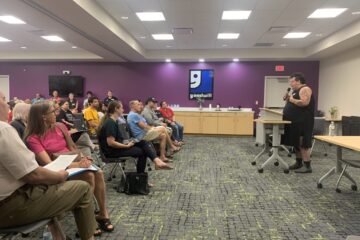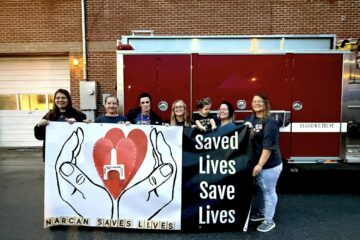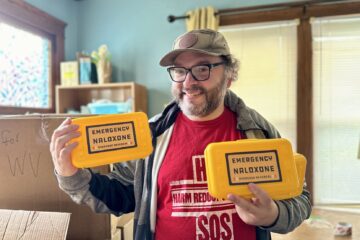Full Article by Lauren Peace | Mountain State Spotlight
As Charleston debates the future of syringe service programs, Mountain State Spotlight highlights what public health experts — and frontline organizations like SOAR WV — want everyone to know: syringe access saves lives and builds bridges to recovery.
At a recent outreach event hosted by SOAR, city council members visited firsthand to learn how syringe services, wound care, HIV testing, food, and compassion are being delivered directly to people who need them most.
“I agree with 99% of the work that SOAR is doing,” said Councilman Bruce King, who attended the event. “I don’t support handing out needles, but I think that we’ve all got to be able to meet somewhere in the middle.”
Public health experts, including national leaders like Yale’s Gregg Gonsalves and WVU’s Dr. Judith Feinberg, emphasize that syringe access does not increase drug use — it reduces HIV, hepatitis C, and healthcare costs, while connecting people to recovery when they’re ready.
SOAR’s approach — rooted in compassion, evidence, and community engagement — offers a model for how Charleston can move forward:
“I hope we can make decisions that are based on data and science and not all emotion,” said Councilwoman Keeley Steele, chair of the city’s Public Safety Committee.
The future of syringe access in Charleston is still undecided, but one thing is clear: fighting stigma with facts — and listening to the voices of those most affected — is critical for real public health solutions.
👉 Read the full article at Mountain State Spotlight.


